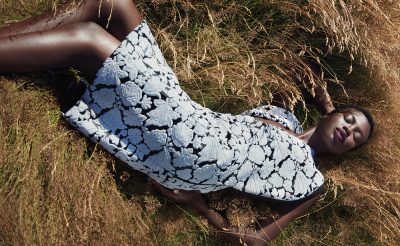We dose up on vitamin and mineral supplements like they are the elixir of life, but could they be doing more harm than good? MOJEH investigates the dark truth
When it comes to supplements, there is so much hype around their potential benefits that it can be hard to separate fact from fiction. Magnesium promotes healthy sleep, B vitamins are great for your metabolism, and calcium keeps your bones strong. While
all this is true, if you’re randomly selecting over-the-counter vitamins like a kid in a candy store to get your fix then it’s time to put down the bottle. At best they are probably ineffective, and at worst they could be detrimental to your health and wellbeing. It’s a rather worrying statistic, then, that Grand View Research reported that the global dietary supplements market is currently valued at US$140.3 billion, and is forecast to grow 8.6 per cent year-on-year to 2028. In an ideal world, we would get all the nutrition we need from the food that we eat, yet everything from hectic lifestyles to the rise of processed food, depleted soil and digestion difficulties make this increasingly difficult.
“One of the biggest barriers to stopping our food providing all our daily nutrients is that our soil is depleted,” Olga Hamilton, a UK-based fully qualified nutritional therapist and head of nutrition at Bodhimaya, a pioneer in personalised wellness retreats and nutritional therapy, tells MOJEH. “We grow our fruits and vegetables in greenhouses with artificial lights, artificial soil and a lot of fertilisers. All of this negatively effects the nutrient content of the soil, which then has a knock-on negative impact on the food it grows. We would need to revert to the proper food growing techniques of years past to get full nutritional value from our foods.” Case in point? A Japanese study showed that between 1950 and 2000 the iron content of spinach dropped from 13mg to 2.7mg – a loss of four fifths. This pattern is repeated to differening degrees across produce and nutrients.
View this post on Instagram
“In many cases we also see compromised digestive function, so even if you eat the right food in the right quantities, you might not be able to metabolise it,” adds Jamie Richards, chief wellness officer at Valeo, a new science-based digital wellbeing platform from the UAE. “The famous quote states ‘you are what you eat’, but actually we should change that to ‘you are what you absorb’.” All of this has led to a rise in the number of people taking supplements to fill what Jamie calls the ‘nutrition gap’ – the difference between what we need and what we get. But when over-the-counter vitamins and minerals are often mass produced with the same cheap materials as the food we eat, it’s no surprise they could be doing more harm than good. Before reaching for that bottle of vitamin C, the first thing to ask is whether you actually need it. That’s where Valeo comes in. Launched in June 2021 as the first regional platform of its kind, the app was designed to make health optimisation convenient by offering different at-home blood tests, with one looking specifically at vitamin and mineral deficiencies. “Blood testing is one of the most powerful ways to understand what is going on inside your body and identify any deficiencies and your need for supplements,” explains Richards. “They also serve as important checkpoints to evaluate the effectiveness of the supplementation regime, alter its dose, or end it when the deficiency is resolved.” As such, Valeo measures eight different nutrient-based biomarkers, including vitamin B12, vitamin D, calcium, magnesium, zinc and iron (though tests can be customised to include any nutrient), with a health coach on hand to talk you through your results, offering expert guidance on how to restore levels and prescribe supplementation where necessary. It currently uses trusted supplement brands such as Wellbeing Nutrition, Biotics Research and Kapiva, with plans in the works to launch its own supplement brand too, so watch this space.
Of course, when used properly, some supplements may improve your health. But there’s a plethora of research showing others can be ineffective or even harmful – partly because we all have different nutritional requirements, and partly because not all supplements are created equal. Vitamins and minerals fall within two distinct camps: water soluble, like vitamin C, D, E and all the B vitamins, and fat soluble, which includes the likes of vitamin D, E and A. While the former are fine to take on a daily basis – your body can control these, filtering out the excess via your urine – that’s certainly not the case for the latter. “As the name suggests, fat soluble vitamins are stored in your fat and places like the liver, and can lead to toxicity if you take too many,” explains Hamilton. “Vitamin A, for example, can be dangerous to take as a supplement if you’re not deficient, and is why pregnant women are not allowed to eat liver. It contains very high levels.” Iron supplementation is another important one to watch out for, especially for men. “I see a lot of men taking iron supplements as they have heard it helps with energy and is good for sports performance,” adds Hamilton. “However, men are very, very rarely deficient in iron. The excess can get deposited in their brain, increasing the future risk of Alzheimer’s and dementia.” This isn’t the case for women though, who shed their excess through regular menstrual cycles. “I would say about 50 per cent of the female clients I see are iron deficient, so this is the first nutrient I would test for if someone complains about feeling tired all the time, not being able to focus properly, waking up regularly in the night or even losing hair,” says Hamilton. In one 2019 study researchers from Tufts University in Massachusetts also found that taking calcium supplements could double a person’s risk of cancer, following an analysis of 27,000 US adults – and that’s not the only danger. “Over-supplementing calcium in women can be detrimental, as the excess gets stored in soft tissues such as veins and arteries, which accelerates their calcification and leads to a higher risk of heart damage,” says Richards.
View this post on Instagram
There are, however, certain cases where vitamin supplements can always be useful: growing children between six months and four years old should take vitamins A, C and D. Strict vegetarians may need supplementary vitamin B12 and those who are pregnant or breastfeeding should also consider taking vitamin D and folic acid. Another warning to keep in mind is that dietary supplements can sometimes interact with one other, as well as over-the-counter and prescription medication. Some compete with each other to be absorbed, such as zinc and copper, with the former potentially interfering with absorption of the latter which can lead to deficiency. “Calcium also affects how the body absorbs other minerals including zinc, magnesium and iron, so combinations are not recommended,” says Richards.
Vitamin deficiencies are common throughout the UAE – surprisingly, perhaps, scientific and medical communities unanimously agree that vitamin D deficiency among the population is the most alarming, with recent studies indicating that near 90 per cent are deficient despite the year-round availability of sunlight. “It’s difficult to get enough vitamin D from food as many people don’t like its sources, like oily fish,” explains Richards. The hot climate also prevents people from going outside, and exposure to sunlight is also needed to convert vitamin D to its active form. “A deficiency in vitamin D can also lead to a lack of calcium in the body, which is another deficiency that has been noted to be increasing in the UAE,” adds Richards.
View this post on Instagram
Again, surprisingly, a rise in the vegan movement can also be blamed for our lack of nutrients, as followers often switch from highly processed red meat diets to highly processed vegan diets with dairy substitutions, many of which contain little to no nutritional value. Iron deficiency is common in vegans, as is vitamin B12, which only comes from animal sources of protein. “Every self-respecting vegan knows they should be supplementing B12,” adds Hamilton.
In 2022, focus will shift to healthspan – the years of life we are healthy and free of disease – instead of lifespan. More people are expected to support their health with diet, lifestyle and supplements, not just in mid to late age or when a health issue arises, but through their whole lives. While this is a good thing, it has to be done in the right way. “I would always prefer diet over supplementation when it comes to getting the nutrients our body needs, but it’s not realistic,” concludes Hamilton. As such, all the evidence points to a tailored approach to supplements, with testing and prescriptions from trained professionals, being best. For the sake of our health, we’d be wise to listen.
Read Next: Five Collagen Supplement Myths Debunked



